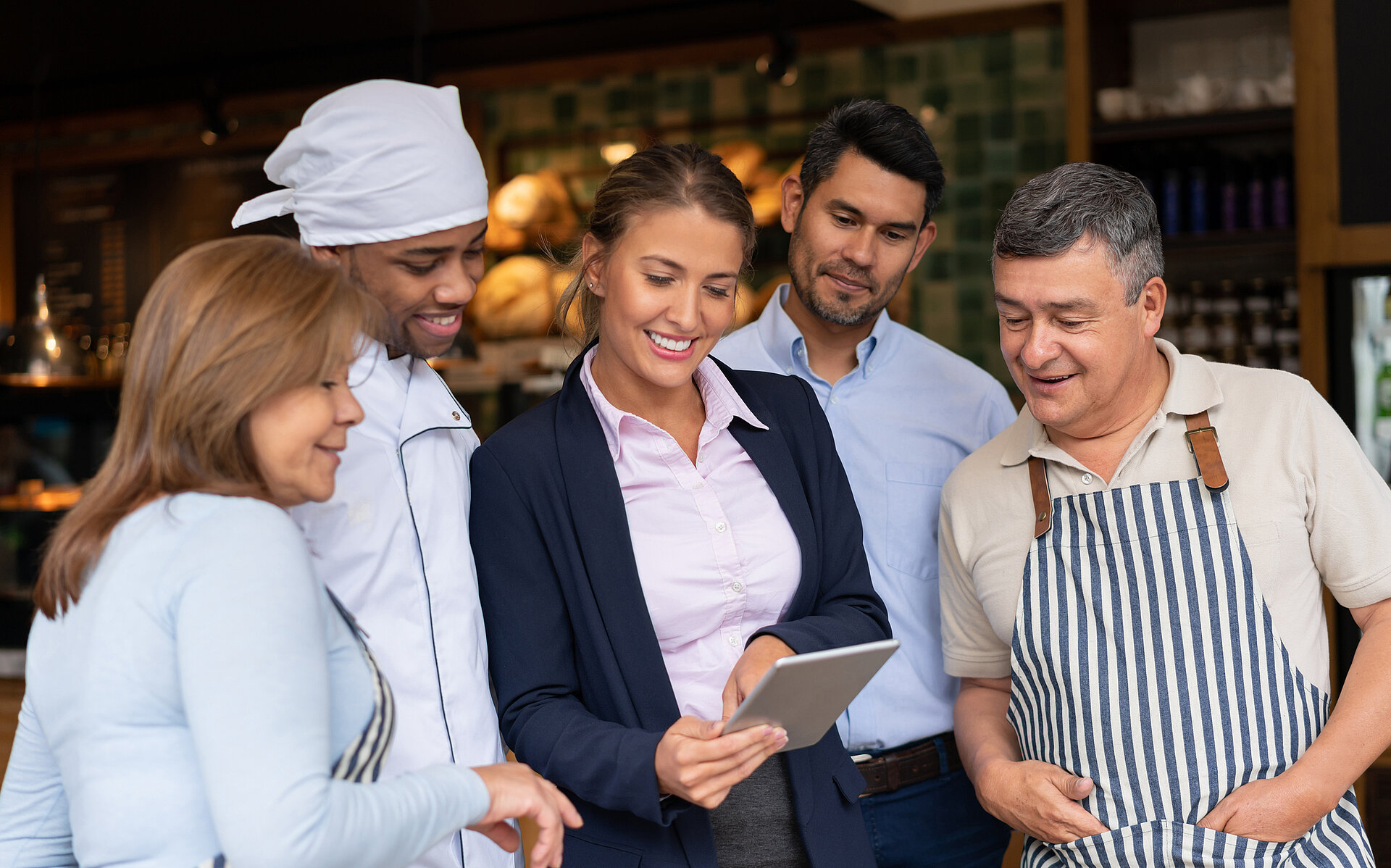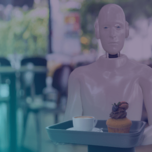6 ways to improve operational efficiency in restaurants, hotels, and bars

If you’re an owner or manager of one or more hospitality venues, then you’ll know that operational efficiency in restaurants or any other hospitality venue doesn’t happen overnight. Managing teams, operational processes, stock control and ensuring your guests are happy are just some of the daily challenges we face.
Operations and processes and service that are inefficient, disorganised or out of date will eventually result in unhappy guests, dissatisfied employees, and negatively impact your bottom line.
So, what makes a good multi-site leader? Emma Banks, Vice President, F&B Strategy & Development Europe, Middle East and Africa at Hilton believes, "firstly, multi-site leaders need to understand what the guest needs are, get an idea of the team dynamic, and to measure standards, consistency, atmosphere, and service. Checking health and safety is crucial, as it’s the absolute minimum that we owe out guests.
Firstly, multi-site leaders need to understand what the guest needs are, get an idea of the team dynamic, and to measure standards, consistency, atmosphere, and service. Checking health and safety is crucial, as it’s the absolute minimum that we owe out guests.
In this article, we look at some of these core areas to focus on for successful multi-site hospitality leadership.
1. Improving guest satisfaction
It’s true that attracting a new customer costs six to seven times more than retaining an existing one. And guests who have had a poor experience are likely to leave a bad review on one of the many review portals that exist today.
Ensuring a positive guest experience involves many factors, and it starts the moment they make a reservation, followed by the food, service and ambience, among other factors.
Monitoring guest satisfaction is one of the most critical KPIs among hospitality leaders. Yet managing online reviews can be a full-time job with so many different platforms to track. Reputation by Mapal gathers them all into one easy-to-use platform and shows the most important data in a simple dashboard. Artificial intelligence helps analyse photos posted on social networks giving you key information to boost your marketing efforts.
2. Make use of business analytics
As Peter Drucker said, “you can't improve what you can't measure.” But with so many possible aspects to measure, you need to decide which are the most important KPIs (Key Performance Indicators) for your business. These could include:
- Guest and employee satisfaction
- Staff retention
- Like-for-like sales and profitability
- Food and beverage cost %
- Safety incidents
- Wastage per customer
- Cost per labour hour…
…And the list goes on
Mapal OS offers a comprehensive suite of back of house software, all of which have robust analytical tools to help you track performance.
For even deeper insights, Mapal Analytics is a standalone tool which integrates our other applications, providing in-depth insights from all across your business. Analytics does all the hard work for you, crunching the data to bring you a simple overview of the numbers you want to see, and in real time.
3. Digitise daily operations
When managing a restaurant, bar or hotel, staying compliant with food, health, and safety regulations, as well as maintaining operational and brand standards, can take a lot of your team’s time. Manual, paper-based processes also leave room for human error, which can also affect your customers’ safety.
Daily procedures and checks can be made so much simpler through technology such as Compliance by Mapal. By digitising checklists and making them available to your team via mobile, they have clear visibility of all their daily tasks. Site and area managers have a clear overview of completion rates, audits, and are immediately notified of any incidents, so they can take action where necessary.
Espresso House is a Swedish coffee house chain with 460 sites and uses Compliance to simplify its daily routines, forms and meet HACCP regulations. Digital Operations Manager, Marcus Von Tell, states that "Compliance enables head office, area and site managers to get an overview of completion rates and how many tasks each store has performed. Area managers can then focus on the more important issues to maximise their time during their periodic site visits, as well as understand the issues that affect sales and customer satisfaction."
Compliance enables head office, area and site managers to get an overview of completion rates and how many tasks each store has performed. Area managers can then focus on the more important issues to maximise their time during their periodic site visits, as well as understand the issues that affect sales and customer satisfaction.
4. Team development, learning and coaching
Hospitality recruitment has never been harder, so retention is key to guarantee your levels of service and secure talent for the future.
Employee learning is fundamental not only to equip your teams with the skills and knowledge they need, but also to keep them motivated. In today’s digital world and considering the large proportion of younger employee profiles in hospitality, bite-size, engaging and mobile-friendly learning modules such as those offered by Flow Learning by Mapal are by far the most effective.
Site and area managers play a crucial part in team development, as well as nurturing future talent from within. Restaurant industry strategic advisor and mentor, David Singleton, of Socius Group, is an advocate of the “Leader-Leader” culture (Turn the Ship Around), where managers empower, coach, mentor and challenge their team.
The ideal manager will hire front line people with future potential and then develop that talent into leadership roles. They will set high performance goals and allow their team to thrive, supporting and coaching them as they work and grow.

5. Reduce labour costs and improve productivity
Hospitality businesses are subject to daily, weekly, and seasonal fluctuations, which can make team scheduling a headache. Not getting it right may also result in a surplus, or lack of staff, which can have a direct impact on your business costs and customer satisfaction.
Technology can offer significant operational efficiencies in the form of team management software. Workforce by Mapal, for example, generates perfect schedules in minutes, based on industry-leading algorithms that analyse past sales data to provide startlingly accurate predictions. The tool helps you to ensure you have the right staff, with the right skills, at the right time, optimising our costs and maximising productivity levels.
Needless to say, improving the efficiency of scheduling saves managers’ time so they can focus on their team and customers. In turn, giving employees transparency over their shifts, the ability to request holidays, notify absences and clock in and out through an app will also improve guest satisfaction and retention.
6. Optimise food costs and reduce waste
Reducing food waste, complying with allergen regulations, and keeping costs under control is crucial in kitchens today. And when you’re running a kitchen, the less time you have to spend on paperwork, the better.
Staying on top of your inventory, managing suppliers, and controlling food costs can be a full-time job if done manually. A kitchen and waste inventory management system can help you with supplier management, to help you buy better and monitor traceability.
Easilys f&b by Mapal offers all these features and is widely used by the commercial and collective catering sectors alike. It can also ensure that stock levels are updated as food is ordered, in real time, and help you prepare menus that cater for vegans, coeliacs and control allergen information across your business.
Our recent whitepaper “Keys to successful leadership of multi-site hospitality businesses” explores a variety of successful approaches to managing a restaurant, hotel, bar, coffee shop and catering businesses. For new ideas and inspiration for setting clear objectives for remote management and leadership, download the whitepaper here.




